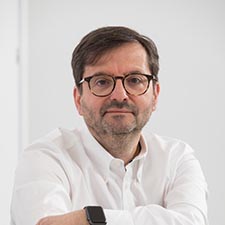An Experienced CRO And Sites Lead To Patient Recruitment Success

By Ed Miseta, Chief Editor, Clinical Leader

Bone Therapeutics is a public biotech headquartered in Gosselies, Belgium. The company has 35 employees and was founded about 10 years ago. The company has a unique approach to the development of cell therapy products for orthopedics and bone diseases which uses differentiated bone-forming cells.
“We are targeting orthopedic disease and other unmet medical needs primarily with MSCs (mesenchymal stromal cells),” says Miguel Forte, CEO of Bone Therapeutics. “MSCs have multiple functions in controlling disease and regenerating tissues. They are present in several tissues, including bone marrow.”
MSCs from healthy donor patients are used to address therapeutic targets. One of the products, JTA-004, an improved viscosupplement, is in Phase 3 testing for knee osteoarthritis. Another product, ALLOB, derived from MSCs, is in Phase 2 testing for difficult fractures and lumbar spinal fusion. The product has the ability to accelerate bone formation, accelerate fracture resolution, and prevent late-stage complications. Two other products, which Forte believes are the next generation of MSC treatments, are in discovery and preclinical.
“We have preclinical data showing that we can double the speed of bone formation,” states Forte. “That means we can resolve a fracture in half the time it would normally take. In some trial patients we have been able to form bone in fractures where their bodies were unable to do so. We have clinical evidence showing accelerated bone formation. We have clinical evidence in humans that also shows it's safe and tolerable.”
Bone Therapeutics expects to expand its portfolio into other areas using its MSC platform. The current Phase 3 trial of JTA-004 is expected to demonstrate relief for patients with cartilage damage by allowing the cartilage to regenerate and reduce to need for knee replacement surgery. The company conducted a previous controlled study against the leading marketed treatment and was able to document clinical benefits three months and six months after a single injection. The results of that study convinced the company to discuss a Phase 3 trial with the EMA.
COVID Disrupts Recruitment
Approvals for the study were obtained in early 2020 and the study was initiated in March. Unfortunately, COVID soon became an issue. The company had to delay recruitment for a couple months but was able to quickly get back on track.
 Miguel Forte, CEO, Bone Therapeutics |
“We did face challenges,” says Forte. “They were not serious challenges, but they did have a significant impact on our recruitment process. COVID created obstacles by forcing many hospitals and clinics to refocus their resources and concentrate them on managing patients with COVID. When the pandemic hit, trial recruitment was no longer a priority for them.”
Fortunately, the study did manage to generate a lot of interest from patients and the physicians treating them. Both groups wanted the company to move forward with the clinical trial. By partnering with a CRO the company was able to streamline the recruitment process. Follow-up appointments with patients were done remotely, which helped with recruitment.
Integration Is Key
The recruitment results were rather astonishing. Despite having to deal with the pandemic, Bone Therapeutics was able to recruit more than 700 patients in Europe and Hong Kong and was able to finish recruitment on time and prior to the end of the year.
“Everyone knows the pandemic impacted trials,” says Forte. “Our goal was to accelerate and manage recruitment during the COVID pandemic while also properly managing follow-up visits for patients. COVID continues to spread, and we are still dealing with it, but we did not allow it to derail our study.”
Forte believes the key element for the recruitment success was good integration with partners, primarily its sites and CRO. “We had good interactions with our CRO, and they were closely integrated with the site investigators,” he says. “Investigators were convinced of the value of the trial and interest that patients had in it. Everyone involved also worked to ensure we had contingency plans in place and could manage the trial geographically. That required constant dialogue between stakeholders.”
The two products, in phase 3 and phase 2b, are both injectables that need to be administered by a health practitioner in a hospital or clinic. The company has optimized the process by getting large and consistent numbers of doses which can be frozen, cryo-preserved, and stored locally before being administered to patients.
Expertise In Osteoarthritis
When it came time to select a CRO, Bone Therapeutics wanted to partner with a service provider that had extensive experience in osteoarthritis. The company found that experience in NBCD, a Danish CRO. NBCD specializes in patient recruitment and the design and execution of clinical trials for osteoarthritis. The CRO has managed several Phase 1, Phase 2, and Phase 3 trials and enrolled more than 15,000 patients worldwide.
“NBCD has been heavily involved in this therapeutic area and had a good track record,” says Forte. “We selected them precisely because of their extensive experience in knee osteoarthritis. They know most of the investigators in this area and were very helpful in helping us decide which sites to engage. The sites that were selected were critical to our successful recruitment campaign because they were experienced and well-versed in executing osteoarthritis trials. They are not a large, global CRO, but they had the geographic reach we required.”
Forte notes the company prefers to remain engaged in studies, even when working with a CRO partner. Therefore, it chose to take a hands-on approach and not delegate recruitment duties entirely to the CRO. Bone Therapeutics followed the recruitment process closely and was ready to step in and help overcome issues that arose. That approach required frequent monitoring of sites and listening to their concerns.
“We trust our partners, but we also believe it is important to remain close to the conduct of the study,” says Forte. “This is a collaboration and there were regular interactions between our team and the CRO. However, this is not an attempt to control them or watch over their shoulder. Our goal is to contribute to the success of the study.
Learn By Doing
Forte notes if you let your partners run the trial and then send you the data, all you have is the data. You miss out on the learning experiences gained from overseeing the trial. You won’t understand the perspectives of the investigators, patients, or site staff. You are also unable to contribute to the study that is conducted on your own product.
“A clinical trial allows you to understand the needs of your patients,” adds Forte. “If you’re disconnected from it, you are unable to maximize the benefit your product brings to those patients.”
When several patients in the trial voiced concerns about taking public transportation to the hospitals and clinics because of the COVID pandemic, Bone Therapeutics enabled those patients to use a taxi or other form of transportation. That allowed them to make the journey without being exposed to infection from other travelers. Forte notes his company may not have been aware of those concerns if it had not remained closely engaged with the trial.
“We were always trying to determine what might make patients reluctant to participate in the study and then find ways to alleviate their concerns,” says Forte. We did not want any manageable patient concerns to have a negative impact on recruitment. We believe we are collaborating with our CRO, not controlling them.”
The initiation and management of sites was done from a distance, especially when the pandemic was at a peak. Initiation visits and interactions were performed remotely. The patient injections had to be done in person, but Bone Therapeutics optimized all other means of communication to ensure most anything else could be done remotely. In prior trials the company was able to learn what physicians and patients expected. That enabled the company to anticipate concerns and preemptively work to correct them.
When discussing key stakeholders in any trial, Forte also gives credit to regulators. Bone Therapeutics will interact with them regularly and proactively.
“If you want to be successful, those regulator interactions must be a regular part of your drug development process,” adds Forte. “Conversations with regulators are key to ensuring you are compliant with their guidance, addressing the needs of patients, and generating the data needed for an approval. I am a former regulator myself which helps me to understand the importance of their work.”
